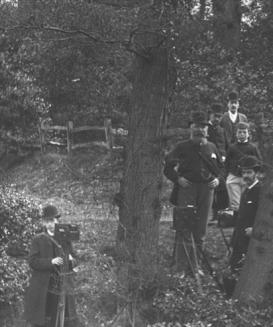As part of a larger project on the photographic survey movement in England 1885–1918, Elizabeth Edwards worked on the ways in which ideas of scientific "objectivity," the "systematic," and networks of amateur science, especially those of geology, anthropology, and archeology, were understood and absorbed by amateur photographers making survey archives for the future. These values, at the blurred boundaries between amateurs and emerging disciplinary professionals, were used to both organize and legitimate their activities. Edwards explored in particular the ways in which amateur photographers engaged in "survey work" drew their values and structures from the British Association for the Advancement of Science who, at the period, instigated a number of survey and visual projects largely dependent of amateur observers, including photographers.

